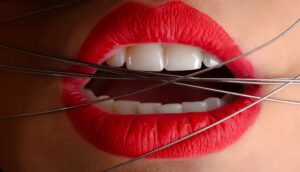
The sound of neighbours guffawing past due into the night, tune gambling from throughout the hall, a humming phone at the bedside table, a tv left on—there are an array of everyday noises that may reason hassle slumbering. Perfect silence isn’t constantly vital, or even ideal, in your first-rate night time’s sleep. In fact, a few sounds at night time can beautify sleep, while others – like a toddler crying or a smoke alarm – are critical to wake up to.
When it comes to noise and sleep, the aim is to defend towards undesirable and disruptive sounds, the intrusive Zopisign 10 noise that interferes with sleep’s ordinary recurring. By taking time to ensure that your snoozing surroundings is optimised for sleep, you’re already for your manner to protecting and improving your nightly relaxation. For a comprehensive manual to improving your sleep, download “Unlocking the Pillars of Health” eBook.
Waking from noise
Noise has a tendency to be most disruptive inside the light levels of sleep, which arise at the start of the night and in habitual durations for the duration of the night time. It’s additionally viable for noises to awaken you from deep sleep and REM sleep. To get a complete night’s sleep, it’s miles vital to defend your sleep environment towards unwanted noise in the course of your night time’s relaxation.
Noise at night time can prevent you from falling asleep to begin with, and sounds all through the night can purpose trouble drowsing.
Even noises that don’t wake you may have a unfavorable effect on sleep quality. The dozing Zopisign 7.5 mind maintains to sign in and process sound. Noises can create restlessness in sleep even supposing they don’t wake you absolutely, and these interruptions have an effect on sleep first-class and the motion from lighter to deeper ranges of sleep.
The mind’s reaction to Noise
Individual responses to noise can vary drastically.
Brains that generate higher concentrations of sleep spindles—bursts of excessive-frequency mind waves—have demonstrated more resistance to noise all through sleep. Sleep spindles first occur during Stage 2 sleep, a section of mild sleep that composes nearly half of an average night’s relaxation.1
Sleep amid ordinary sounds
Familiar sounds tend to be much less disruptive to sleep than new or uncommon sounds. The sounds that arise regularly in our daily lives are ones that we give little attention, and don’t create hassle.2
People in cities fall to sleep with sounds of traffic every night time—the equal sounds that could likely preserve rural dwellers huge unsleeping. The absence of these sounds could make sleep tougher.
Reactions to sounds at some stage in sleep can be influenced by using that means and significance. Sounds indicating possible chance—even very quiet sounds, like the opening of a door—regularly will without problems wake a slumbering man or woman. Hearing their youngsters cry commonly reasons dad and mom to wake almost right away. These responses to noise are incredibly individual, and a signal of ways deeply engaged the mind remains to external stimuli at some stage in sleep.
How to sleep in quiet
As with all elements of sleep, protective towards noise receives simpler with a touch little bit of making plans. If sound interferes together with your sleep at night time, there are modifications you can make to lessen and adjust noise on your bed room:
Carpets and ground coverings, along with curtains at the windows can help muffle noise from outside, and from different areas of the residence.
Keeping windows closed also will restrict noise from outdoor. Be sure to turn off all electronics before you switch in for the nighttime
.
White noise can assist to dam variable noises and provides consistent, soothing sounds that will let you nod off and stay asleep during the night time. White noise machines are designed for this purpose. Radio static, a jogging fan or an air conditioner also can provide this kind of mixed-frequency, sample-much less noise.
Some humans opt for familiar sounds, frequently from nature, which includes breaking waves, crickets softly chirping, or wind rustling thru leaves. Sound machines, CDs, and telephone apps can provide these kinds of enjoyable sound styles to accompany you to sleep.
When you can’t completely control the sounds around you, earplugs can assist. Earplugs are cozy and low-priced manner to limit noise disruption. When selecting earplugs, ensure they’re soft and bendy. Earplugs are rated at decibel stages. Be certain to choose earplugs that rated at no higher than 32 decibels. These will block noise however still can help you pay attention sounds that are essential, along with a infant crying, or your morning alarm.
Watch for noisy mornings
Don’t forget about to don’t forget sounds of the early morning, especially in case you’re having trouble slumbering beyond a sure time. A newspaper shipping, early visitors, neighbour’s dog can disrupt sleep and shorten normal sleep time. In addition to ensuring your sleep environment is quiet at bedtime, it additionally facilitates to protect towards the intrusion of those early-morning noises.
Noise can undermine sleep, but it doesn’t should. Being privy to the noise-related disruptions for your sleep environment—and taking easy steps to reduce unwanted noise—will make your nightly relaxation extra peaceful and rewarding.







